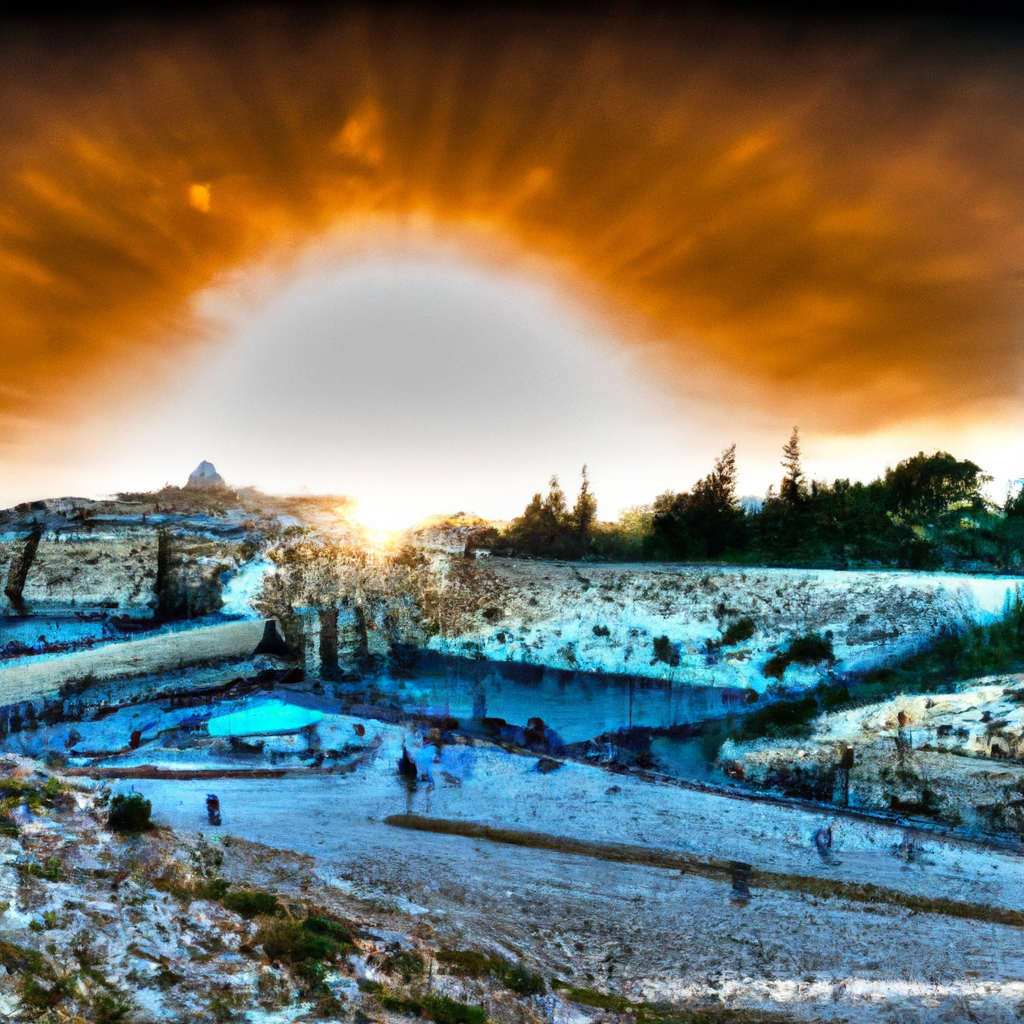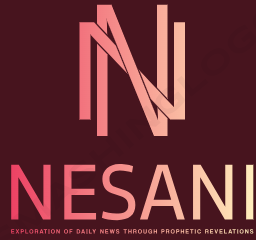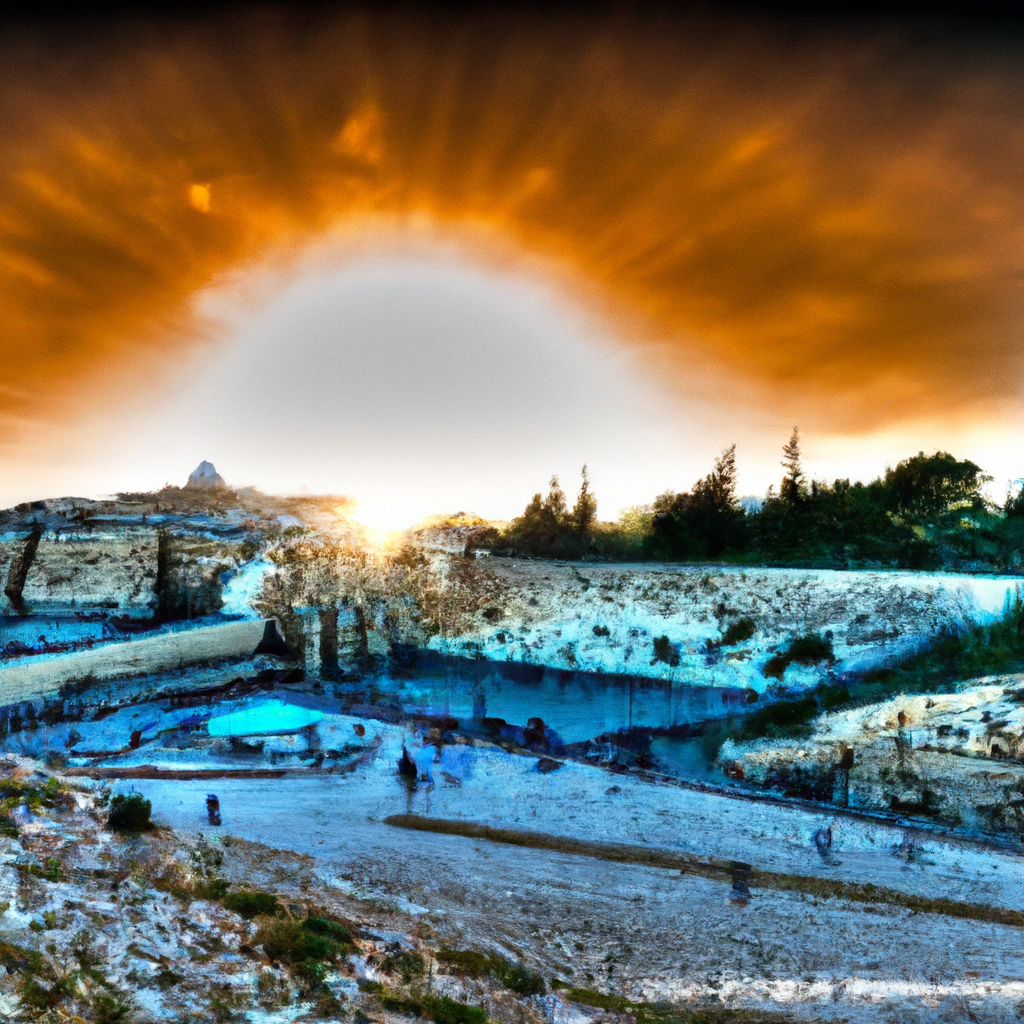Have you ever wondered about the historical origins of the prophetic beliefs in relation to Israel? In this article, we will explore the captivating history behind these beliefs and how they have shaped the understanding of Israel’s destiny. From ancient prophecies to modern interpretations, join us on a journey through time as we uncover the rich tapestry of prophetic traditions that have influenced Israel’s collective consciousness. It’s time to unravel the secrets and discover the roots of these age-old beliefs.

Historical Origins of Prophetic Beliefs
The historical origins of prophetic beliefs in relation to Israel can be traced back to ancient times, specifically to the Ancient Hebrew Prophets. These prophets were religious leaders who played a crucial role in the development of Israelite society and the formation of their religious beliefs.
Ancient Hebrew Prophets
The Ancient Hebrew Prophets emerged during various periods of Israelite history. They were individuals chosen by God to receive divine revelations and deliver messages to the people. These prophets acted as intermediaries between God and the Israelite community, conveying God’s will, guidance, and warnings.
Biblical Texts
The prophetic beliefs in relation to Israel are deeply rooted in the biblical texts, especially in the Hebrew Bible. The Hebrew Bible, also known as the Old Testament, contains numerous prophecies delivered by the ancient Hebrew prophets. These prophecies are recorded in various books, such as Isaiah, Jeremiah, Ezekiel, and others.
Exilic Prophecies
During the Babylonian Exile, when the Israelites were forcibly taken into captivity, the prophets continued to play a significant role in shaping the religious beliefs and hopes of the exiled community. The exilic prophecies focused on the restoration of Israel and the promise of returning to their homeland.
Post-Exilic Messianic Expectations
After the Israelites were allowed to return to their land following the Babylonian Exile, the period of post-exilic messianic expectations began to unfold. The Israelites longed for a messianic figure who would bring about their complete redemption, restore their unity, and establish a righteous kingdom.
Role of Ancient Hebrew Prophets
Throughout the history of ancient Israel, the prophets played an essential role in shaping the religious and social fabric of the Israelite society. They were seen as guardians of divine truth and mediators between God and the people.
Prophetic Tradition in Ancient Israel
The foundation of prophetic tradition in Ancient Israel can be traced back to Moses, who was viewed as the greatest of all prophets. The prophetic tradition was carried forward by subsequent generations of prophets, each with their own unique contributions and messages.
Influence on Later Prophetic Beliefs
The teachings and messages of the ancient Hebrew prophets had a profound influence on the development of later prophetic beliefs. The ethical and moral teachings of the prophets, along with their prophecies of future events, became embedded in the religious consciousness of the Israelite community.
Biblical Texts and Prophecy
The biblical texts, particularly the Torah and the prophetic books, hold significant importance in understanding the prophetic beliefs in relation to Israel.
The Torah and Prophetic Messages
The Torah, the first five books of the Hebrew Bible, contains both historical narratives and prophetic messages. The prophets Moses, Aaron, and Miriam are considered to have received divine revelations in the Torah, serving as examples for later prophets.
Prophetic Books in the Hebrew Bible
The Hebrew Bible consists of several books dedicated solely to the writings of the prophets. These prophetic books include Isaiah, Jeremiah, Ezekiel, and the Twelve Minor Prophets. These books contain a wealth of prophetic messages, including warnings, judgments, promises, and prophecies concerning Israel’s future.
Prophecies Concerning Israel’s Future
Many of the prophetic messages recorded in the Hebrew Bible concern Israel’s future. These prophecies often address issues such as the restoration of Israel, the coming of a messianic figure, and the establishment of a new and righteous kingdom. These prophecies have had a profound influence on the religious beliefs and expectations of the Israelite community throughout history.
Exilic Prophecies and Hope
During Israel’s Exile in Babylon, the prophets played a crucial role in providing hope and encouragement to the exiled Israelite community.
Prophetic Responses During Israel’s Exile
During the Babylonian Exile, the prophets offered messages of hope, consolation, and encouragement to the exiled Israelites. They assured them that despite their current condition, God had not abandoned them and would eventually restore them to their homeland.
Predicted Restoration of Israel
The exilic prophecies included predictions of the restoration of Israel. The prophets foresaw a time when the Israelites would be allowed to return to their land, rebuild their cities, and experience a renewed covenant relationship with God.
Hope for a Messianic Figure
The prophecies during the Exile also fueled the hope for a messianic figure who would play a pivotal role in the restoration and redemption of Israel. The messianic figure was believed to be an anointed one, a descendant of King David, who would establish a reign of justice and righteousness.

Post-Exilic Messianic Expectations
After the Exile, the Israelites held strong messianic expectations as they returned to their land and sought to rebuild their community.
Emergence of Messianic Beliefs
The post-exilic period marked the emergence of heightened messianic beliefs among the Israelites. The hope for a messianic figure became intertwined with the desire to establish a renewed kingdom under God’s reign, bringing about a time of peace and prosperity.
Role of the Davidic Covenant
The Davidic Covenant played a significant role in shaping the post-exilic messianic expectations. God had made a covenant with King David, promising that his descendants would rule forever. This covenant fueled the anticipation for a messianic figure from the line of David who would fulfill this promise.
Messianic Prophecies in the Hebrew Bible
The Hebrew Bible contains numerous messianic prophecies that contributed to the post-exilic messianic expectations. These prophecies pointed towards a future figure who would possess divine qualities, bring about spiritual renewal, and establish a kingdom of justice and righteousness.
Influence of Historical Events
Various historical events and external influences had a profound impact on the development and evolution of prophetic beliefs in relation to Israel.
Impact of Babylonian Exile
The Babylonian Exile had a transformative effect on Israelite beliefs and practices. The traumatic experience of exile led to a reevaluation of their religious identity and a deeper exploration of the prophetic message. The exile experience also shaped the post-exilic messianic expectations and the longing for national restoration.
Effects of Persian Rule
Following the Babylonian Exile, Israel came under Persian rule. The Persian Empire allowed the Israelites to return to their land and rebuild the temple in Jerusalem. This period saw the integration of Persian influences, such as Zoroastrianism, into Israelite religious practices, reflecting the ongoing cultural exchange and its impact on prophetic beliefs.
Greek and Roman Involvement
The Hellenistic and Roman periods brought significant cultural and political changes to the region of Israel. The influence of Greek philosophy and culture challenged traditional Israelite beliefs, leading to various interpretations and adaptations of the prophetic message. The Roman occupation further shaped the messianic expectations and fueled hopes for liberation.
Early Christian Influence
The emergence of Christianity in the 1st century CE had a profound impact on both Judaism and the interpretation of prophetic beliefs. Jesus of Nazareth, often believed by Christians to be the messianic figure predicted in the Hebrew Bible, brought a new understanding of messianic fulfillment and challenged existing interpretations. This influence continues to shape prophetic beliefs within both Judaism and Christianity to this day.
Development of Eschatological Views
The development of eschatological views, which focus on the “end times” and the ultimate fate of humanity, has been greatly influenced by prophetic beliefs.
Emergence of Apocalyptic Literature
Apocalyptic literature, which emerged during the period of the Second Temple, played a crucial role in shaping eschatological views. Apocalyptic texts, such as the Book of Daniel, offered visions of the future, cosmic battles, and the final judgment, providing a framework for understanding the culmination of prophetic beliefs.
Interpretation of Prophecies Regarding Israel’s Future
Throughout history, various interpretations of prophecies concerning Israel’s future have shaped eschatological views. Some interpret these prophecies as predicting a literal restoration of Israel, while others view them symbolically, representing a spiritual renewal. These interpretations continue to be debated among scholars and religious communities.
Formation of Dispensationalist Theology
In the 19th century, dispensationalist theology emerged, which emphasized a distinct periodization of history and a literal interpretation of biblical prophecies. This theology, popularized by John Nelson Darby and later embraced by many evangelical Christians, shaped a particular eschatological outlook that heavily influenced views on Israel’s role in the end times.
Modern Interpretations of Prophecy
In contemporary times, prophetic beliefs continue to be interpreted and understood in various ways.
Different Views on the Role of Israel
In relation to prophecy, different interpretations exist regarding the role of Israel. Some view Israel as having a central role in God’s future plans, while others see a wider inclusion of humanity in the fulfillment of prophetic promises. These differing views contribute to ongoing debates and discussions within religious communities.
Contemporary Messianic Movements
Across different religious traditions, contemporary messianic movements have emerged, each with their own understanding of the role and identity of the messianic figure. These movements often interpret biblical prophecies through a modern lens, seeking to apply them to current events and circumstances.
Political Zionism and Nationalism
The rise of political Zionism in the late 19th and early 20th centuries also influenced the interpretation of prophetic beliefs. Zionism sought to establish a Jewish homeland in the land of Israel, drawing on prophetic promises of the restoration of Israel. This movement continues to shape political and religious discourse, impacting the Israeli-Palestinian conflict.
Influence on Judaism and Christianity
Prophetic beliefs have had a profound influence on both Judaism and Christianity, shaping their respective theological frameworks.
Prophetic Beliefs in Jewish Tradition
Prophetic beliefs have remained integral to Jewish tradition. The teachings and prophecies of the ancient Hebrew prophets continue to be revered and studied, providing guidance and inspiration for Jewish individuals and communities. The messianic expectations also inform Jewish eschatological views.
Prophetic Fulfillment in Christian Theology
In Christian theology, prophetic fulfillment plays a central role in understanding Jesus as the Messiah. Christians interpret the life, death, and resurrection of Jesus as the fulfillment of numerous messianic prophecies. This belief in Jesus as the fulfillment of biblical prophecies shapes the core of Christian teachings and the understanding of salvation.
Similarities and Differences Between the Two Faiths
While both Judaism and Christianity hold prophetic beliefs, there are significant differences in their interpretations and understanding. These differences include the recognition of Jesus as the Messiah, the role of the Hebrew Bible in relation to the New Testament, and varying interpretations of messianic prophecies. Despite these differences, the prophetic beliefs form a common foundation that connects the two faiths.
Impact on the Israeli-Palestinian Conflict
Prophetic beliefs have had a significant impact on the Israeli-Palestinian conflict, with religious perspectives often intertwined with political implications.
Religious Perspectives and Political Implications
Prophetic beliefs, particularly those related to the restoration of Israel, have shaped the religious perspectives of many individuals involved in the Israeli-Palestinian conflict. These beliefs influence political decisions, territorial claims, and the pursuit of national aspirations, often leading to complex political dynamics and challenges for peace negotiations.
Contested Interpretations of Prophecy
The interpretation of prophetic texts concerning the land of Israel and the inhabitants of the region has been a source of contention and disagreement among different religious groups. Competing interpretations often result in conflicting claims and contested understandings, further complicating efforts for resolution and lasting peace.
Efforts for Peace and Reconciliation
Despite the challenges posed by prophetic beliefs and their impact on the conflict, there have been ongoing efforts made by individuals and groups from various backgrounds to promote peace and reconciliation. Interfaith dialogue, peace initiatives, and a recognition of shared humanity seek to overcome the divisive aspects of prophetic beliefs and foster understanding and cooperation among all parties involved.
In conclusion, the historical origins of the prophetic beliefs in relation to Israel can be traced back to the Ancient Hebrew Prophets and the biblical texts. These beliefs have evolved and been shaped by various historical events, internal and external influences, and interpretations throughout history. Prophetic beliefs continue to influence religious traditions, theological frameworks, and have significant ramifications for the Israeli-Palestinian conflict. Understanding the historical origins and developments of these prophetic beliefs provides valuable insights into the complexities of religious and political dynamics in the region.




